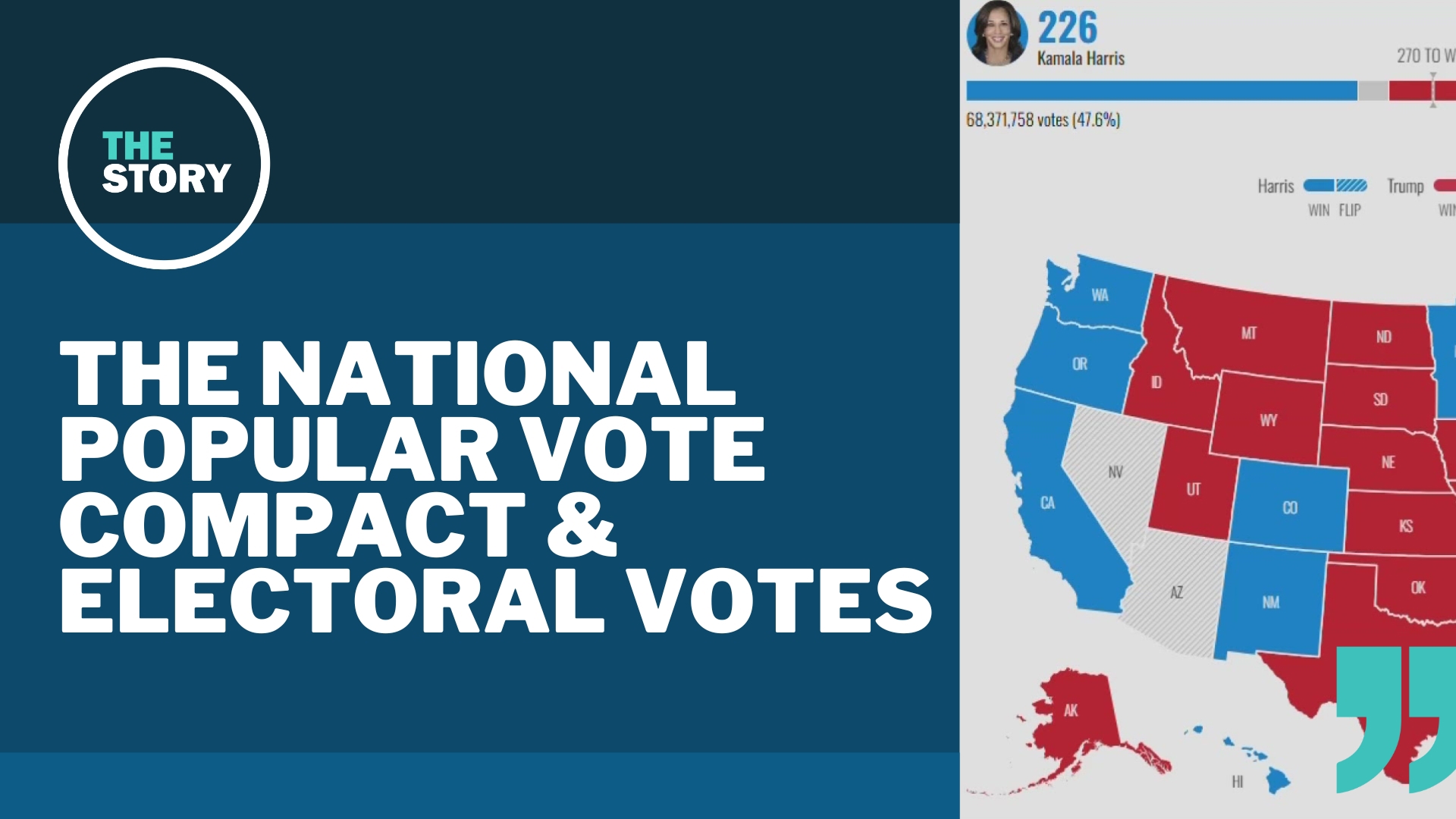PORTLAND, Ore. — Votes are still being tallied several days after Election Day, but it's long since become clear that former President Donald Trump has won enough states to cross the 270-vote threshold in the electoral college secure another term in the White House. As of Friday, Trump has 295 electoral votes and Vice President Kamala Harris has 226, including Oregon's eight.
But unlike in his previous victory in 2016, this time Trump also appears to be on track to win the national popular vote, where he leads Harris by about 4.3 million votes as of Friday. That outcome prompted viewer Jim to email KGW and ask: shouldn't that mean that Trump gets Oregon's electoral votes as well? Here's what he said:
If you check with the Oregon legislature actions of the 2019, you find that a bill was passed on a party line vote that gave Oregon's electoral votes to the winner of the national popular vote. Will Oregon renege on a law passed by the majority party in Salem?
THE QUESTION
Oregon joined the National Popular Vote Compact in 2019, and Donald Trump is on track to win the popular vote in the 2024 presidential election. Doesn't that mean Donald Trump should get the state's electoral votes?
THE SOURCES
THE ANSWER
No, Oregon's electoral votes will not go to Trump. Oregon has joined the National Popular Vote Compact, but the compact is not active yet, so the state's electoral votes will go to Kamala Harris because she won the state's popular vote.
WHAT WE FOUND
U.S. presidential elections are decided using the electoral college system, in which each state gets a number of electoral votes equal to the combined number of its federal senators and representatives, and a candidate must win a majority of those votes — at least 270 — in order to claim the White House.
Individual states get to decide how they assign their electoral votes, and Oregon is one of 48 out of 50 states that use a winner-take-all system, where all of the state's electoral votes go to whichever presidential candidate gets more votes in that state. Maine and Nebraska assign some of their electoral votes by congressional district, allowing for split results.
The electoral college has been criticized because it renders the national popular vote essentially symbolic; a candidate can win the election with the right combination of states even if their opponent got more votes overall. That scenario has happened five times in U.S. history, most recently with Trump's win in 2016 and former President George W. Bush's win in 2000.
Ditching the electoral college altogether would require a constitutional amendment, but opponents of the system have been pursuing an alternative approach: the National Popular Vote Compact, in which states pledge to assign all of their electoral votes to the winner of the national popular vote, even if a different candidate wins the state's own popular vote.
The idea is that if enough states join the compact, the candidate who wins the national popular vote would always be guaranteed to win a majority of electoral college votes. The electoral college would still exist, but for all intents and purposes it would become a rubber stamp for whoever wins the popular vote.
States can join the compact by passing legislation to change the laws that determine how their electoral votes are allocated. Oregon joined in 2019 when then-Gov. Kate Brown signed Senate Bill 870. Democrats controlled both chambers of the state legislature and the bill passed on a party-line vote in the House and with mostly Democratic support in the Senate.
However, the compact has an important caveat, which is baked into the legislation passed by every state that has signed on: it doesn't take effect until the participating states collectively hold at least 270 electoral votes — enough to guarantee the electoral college outcome even if non-participating states continue to allocate their votes in a different way.
At the moment, the compact is still short of that goal. Oregon is one of 17 states plus the District of Columbia that have signed on, but those states collectively only have 209 electoral votes.
Until the compact activates, all of those states will continue to assign their electoral votes using their existing rules, which in Oregon's case means the winner of the state's popular vote gets all eight electoral votes — and the winner this year is Kamala Harris.

